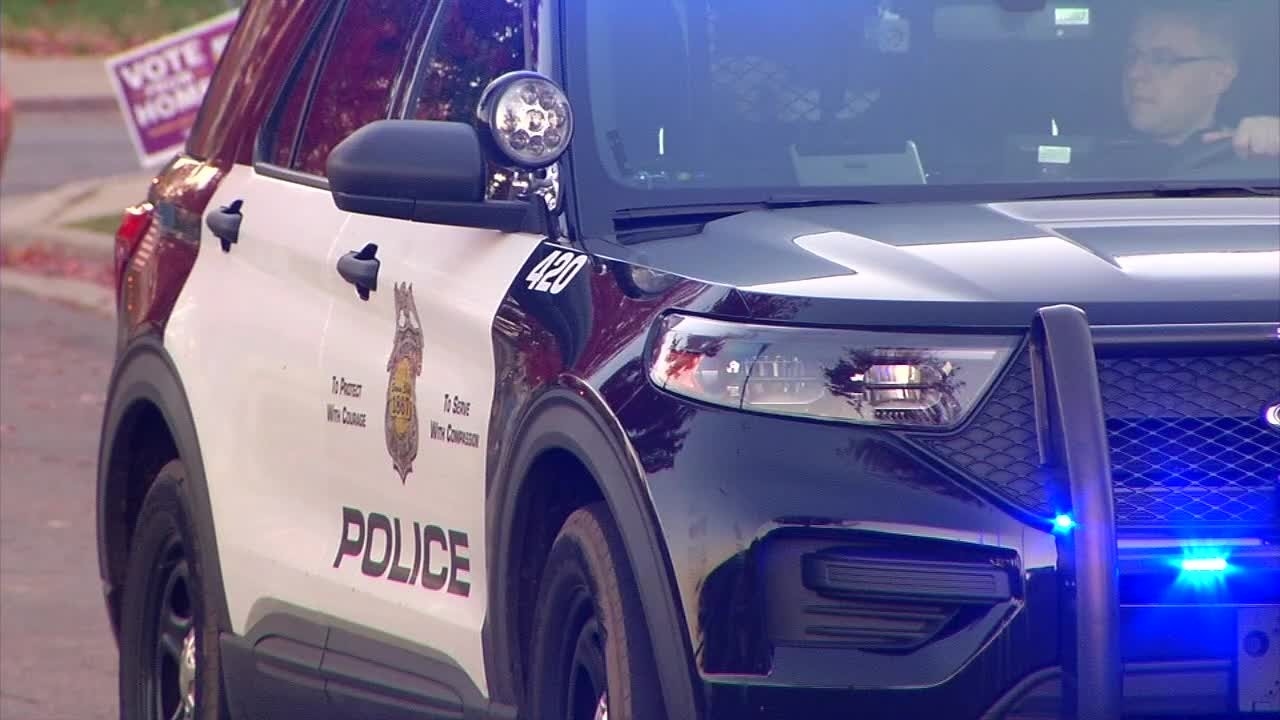Community members call Minneapolis, Human Rights Dept. agreement ‘long overdue’
[anvplayer video=”5170622″ station=”998122″]
Community leaders call a new court enforceable agreement between the City of Minneapolis and the Minnesota Department of Human Rights “long overdue.” The document details changes the Minneapolis Police Department will be required to make to address a pattern of racial discrimination.
A 72-page MDHR report released in April 2022 outlined a decade of discrimination by MPD, including higher rates of force against Black residents, higher rates of traffic stops of vehicles with people of color, disparities in searches and citations, and a culture where officers and supervisors used racist and misogynistic language.
“This is a long and challenging path forward,” said MDHR Commissioner Rebecca Lucero at a news conference Friday. “Changing a culture does not happen overnight.”
The state’s investigation into the department was launched in 2020 after the murder of George Floyd.
Bishop Richard Howell Jr. of Shiloh Temple International Ministries in Minneapolis is hopeful the new agreement will lead to reform within MPD.

(KSTP/file)
“I think accountability at this point is necessary,” he said. “What happened to George Floyd was a tragedy and certainly was a seminal moment for us to realize we have to change the language in what we’re doing as a city, as a police department.”
The new agreement will prohibit certain traffic stops when the only violation is related to equipment, such as failure to display registration tabs; failure to illuminate the license plate; and driving with only one functioning headlight, brake light or tail light, among others. Instead, a notice of repair will be mailed to the driver.
“We have to respect our law enforcement and there are times when they have to do their due diligence but I’m thinking this consent decree will reduce some of the foolishness that has been so prominent,” Howell said. “I hope racial profiling is eliminated completely and we also respect our mentally imbalanced community that they are given fair protection rather than getting a bullet to end their lives. We also have the ability to defuse and deescalate matters that don’t have to end in deadly force.”
According to MDHR, the state agency held 15 community meetings last summer to gather input from the community.
Andre Locke also met with the state agency during the process. He has been critical of MPD policies since his son, Amir Locke, was shot and killed when officers served a no-knock warrant at a Minneapolis apartment building in February 2022.
“I look forward to meaningful change,” Locke said. “[The agreement] reflected on some of the things we spoke about, and I’m thankful for that. Everything is not going to be there that we wanted, but for the most part, it’s definitely a step moving forward and progress.”
In the agreement, MPD commits to continue its ban on no-knock warrants.
“The decree has put them in a position where they have to do this but just the willingness to be a part of it says a lot about them moving forward and wanting to do the right thing,” Locke said. “We’ve yet to see how Minneapolis, MPD actually put these things into play.”
The document also requires the independent monitor, who will oversee compliance, to conduct an anonymous annual community evaluation survey. MPD will be required to establish a webpage to receive comments from community members about the department’s policies and practices, as well as make discipline records available to the public through the city’s website.
“I am glad that information will be made public,” said Nekima Levy Armstrong, a civil rights attorney and founder of the Racial Justice Network. “We’ve been asking for a long time for there to be ongoing releases of information pertaining to MPD.”
She added, “We have to be vigilant in reviewing that material and raising questions and concerns when we have them. We cannot assume that simply because a consent decree has been agreed upon and that a monitor will be assigned that the work is complete.”
Levy Armstrong, who previously served on Mayor Frey’s community safety workgroup, hopes the new agreement will lead to increased officer accountability.
“That there is consistency in terms of accountability for officers who violate the law, violate people’s rights, because have not seen that,” she said.
Levy Armstrong reiterated it will take years for MPD to change its culture.
“Systems don’t change overnight,” she said. “We know there will be violations. … Our reaction to those violations is going to be critical in terms of sending a message to the city that we are paying attention, we expect change and we expect them to follow through on the promises they have made to the residents of Minneapolis.”